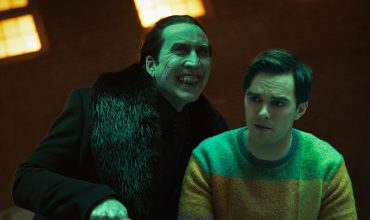Political interference in the Avengers’ activities causes a rift between former allies Captain America and Iron Man.
Director team Anthony and Joe Russo first entered the Marvel Cinematic Universe with the Captain America sequel Winter Soldier, this year they continue that arc with Captain America: Civil War, before they will pick up where Joss Whedon left off on the Avengers films with 2018’s Avengers: Infinity War Part 1.
Civil War marks the official commencement of Phase 3 of the MCU, and it delivers a very natural extension from the events of Winter Solider, while incorporating other elements of the Marvel studio films. Adapting Mark Millar’s comic book epic into a film was never going to be an easy task, or one that could really incorporate all elements of the pre-existing story. However screenplay writers Christopher Markus, and Stephen McFeely have developed a script that manages a fine balancing act between story, characters, and action.
Despite the large number of characters at play here, each of them are given their highlights, as the film takes the time to develop the characters who are either new or recent additions, while working with the existing characters and utilising elements of their background that has already been established with the audience.
With so many characters on screen you’d be forgiven for taking this to be the next Avengers instalment, but it’s still very much a Captain America centric film. He’s the heart of this story, and the primary character around which events unfold.
Characterisation aside Civil War gives a compelling tale and captures some of the dramatic elements that I felt were absent from the more clinical Winter Soldier film. Marvel have struggled somewhat with providing interesting and well fleshed out villains, and while the villain here isn’t without shortcomings, it’s an interesting concept and not really something we’ve seen previously in the MCU but again – it’s an area that could have been better explored and fleshed out for a more compelling third act conclusion.
Motivations aside, the villain’s plan here is also quite flimsy and doesn’t hold up to much scrutiny, its primarily a conduit to capitalise on the dramatic tension going on between the Avengers, and ultimately ends with a whimper more than a bang.
With such high ambitions the film it does feel abridged at times, and there are often scenes, or story threads that feel as though they could have benefited from some longer screen time but even at two and a half hour runtime, Civil War feels as though only the essential, and absolute best content out of what they created is what’s been left in the final cut, and that’s by no means a bad thing.
The film is exceptionally well paced across its 2.5 hours, with multiple engaging action set pieces intertwined with story beats and character moments, overall it’s an engaging and energetic film. Despite having seen these characters at work multiple times over at this point, the film manages to still find different ways to utilise action set pieces, and to capitalise on the physicality of these characters in an interesting way. What Civil War does however which is even more important, is it utilises the story and dramatic elements to really become the driving force behind the action which makes it all the more compelling.
For those excited to see Spiderman forge his way into the larger Marvel universe, you will not be disappointed, he makes a huge impact on this film and will leave audiences wanting more. The other newcomer Black Panther is also well utilised, and where the writing is again quite clever here is that it essentially ties in a Black Panther origin story into this film, leaving his solo film with the freedom to easily go beyond that story obligation.
Overall Civil War is a thoroughly enjoyable film, it’s a great entry to the franchise with a fine balance of emotion, drama, action, and story. I’m giving it 8 out of 10 stars, you can see it cinemas around Australia from Thursday 28th April 2016.




